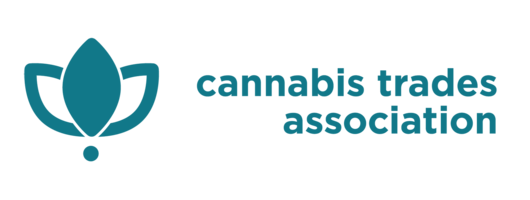For clarity: The CTA is issuing this initial review to the CBD trade sector in parallel with any further future regulatory changes that might arise as an outcome from the Government response to the ACMD of the 24th October 2023 by Rt Hon Chris Philp Minister of State for Crime, Policing and Fire, and the FSA as the regulator involved in CBD as a Food.
The Full Letter to the ACMD from Rt Hon Chris Philps MP can be seen here:
Government response to the ACMD’s advice on consumer CBD products (accessible version) - GOV.UK (www.gov.uk)
The CTA Key Points* for the CBD Industry as a result of the Government response to the ACMD Report:
- The Government is recognising consumer CBD products as a food and uncoupling this from the Home Office regulation in relation to narcotics and licencing.
- A `serving’ has not been defined but may be defined in the future.
- Permitting 50micrograms for EACH phytocannabinoid per unit of consumption allows the consideration of a wider spectrum of CBD consumer products than currently thought. The government hopes to bring forward secondary legislation in due course and recognises the `Unit of Consumption or Serving’ will differ between different products.
- There will be an Exempt Product Definition (EPD) from the Home Office to the FSA in relation to consumer CBD products.
- A food is not a drug. This uncouples CBD as a foodstuff from the Misuse of Drugs Act and gives the freedom to the FSA to treat CBD as a Food under Food Law – hence phytocannabinoids are now `contaminants’ in the food ingredient.
- Ensuring CBD is recognised as a food and setting THC and other phytocannabinoid levels in finished products should ease retail sales and speed up the Novel Food process.
- Phytocannabinoid levels have the potential to increase over time under these recommendations as more toxicology and scientific data becomes available.
*This information is for guidance only and has not been checked legally or with government officials.
In support of these changes the CTA has provided the FSA with testing protocols, standardised COAs recommends only using accredited ISO17025/2017 laboratories.
This is the start of the changes for CBD a s food ingredient within the FSA. The CTA will be part of a series of meetings being set up by the FSA (and others) in relation to CBD within these parameters being designated a food ingredient. The following is taken from the response:
Recommendation 1
That the total dose of delta-9-THC (including delta-9-THCA) and all other controlled Phytocannabinoids in consumer CBD products be controlled. The dose of EACH controlled Phytocannabinoids should not exceed 50 micrograms per unit of consumption. A unit of consumption or ‘single serving’ being defined as the typical quantity of a CBD product consumed on one occasion.
Government response
The Government accepts this recommendation and intends to bring forward legislation to implement it, subject to Parliamentary approval. The specificity of the terms of legislative provisions setting the Unit of Consumption (or serving) for the permitted dose, which will differ between different products, will require further careful consideration.
Recommendation 2
That regulatory authorities ensure that any consumer CBD product permitted to market has the limits on the content of controlled Phytocannabinoids such that the dose of delta-9-THC (including its precursor delta-9-THCA) and EACH of the other controlled Phytocannabinoids does not exceed 50 micrograms per unit of consumption.
The ACMD advise another analysis of the controlled Phytocannabinoids content of consumer CBD products is performed by DSTL two years after the implementation of the regulations to check the level of compliance.
Defence Science and Technology Laboratory based in Salisbury
https://www.gov.uk/government/organisations/defence-science-and-technology-laboratory
Government response
The Government accepts this recommendation in principle and, as outlined above, intends to bring forward legislation to prescribe the lawful amount of controlled phytocannabinoids in consumer CBD products.
We will work further with law enforcement, supported by regulatory authorities, on the mechanisms for the enforcement of legal requirements in respect of consumer CBD products.
Recommendation 3
A further inter laboratory comparison trial (ring trial) should be commissioned specifically to support the capability of testing laboratories to detect controlled phytocannabinoids below the recommended maximum levels in a representative range of consumer CBD products.
Government response
The Government accepts this recommendation in principle, subject to funding being found.
Recommendation 4
That development of more accurate testing for controlled phytocannabinoids is supported (as outlined in Notes 1 – 3 below) to allow testing capabilities to develop and be fully regulated.
Note 1:
Standardised protocols should be developed for the extraction, separation and quantification of controlled cannabinoids (and their precursor acids) from consumer CBD products.
These must be of sufficient reproducibility and sensitivity to be appropriate for the measurement of the level of controlled phytocannabinoids as recommended in this report.
Note 2:
As chemical reference standards are not currently commercially available for all controlled phytocannabinoids, suppliers of chemical reference materials should be encouraged to produce certified standards for those controlled cannabinoids for which standards are not currently available.
Note 3:
ACMD supports the recommendation from the DSTL report (Defence Science and Technology Laboratory report, 2020b) that the analytical methods used should be accredited to ISO 17025:2017 to ensure appropriate method validation, quality control and independent assessment of the methods.
Government response
The Government accepts this recommendation in principle and will work with partners in industry to seek to meet these ambitions.
Recommendation to reform the Exempt Product Definition in relation to CBD products
The ACMD recommends changing the first limb of exempt product definition to refer to the ‘preparation or other product containing the controlled drug’ rather than the ‘controlled drug’ except for ‘research’ purposes as defined in Schedule two of the Psychoactive Substances Act 2016.
An example of such a wording could be: (a) the preparation or product containing the controlled drug is not intended for administration to a human being or animal other than for the purpose of approved scientific research, as defined in Schedule 2 of the Psychoactive Substances Act 2016.
Government response
The Government agrees in principle to amend the definition of the EPD and will consider the most effective ways in which to do so, recognising that ACMD may provide further advice on the exempt product definition in the context of its consideration of barriers to research with controlled drugs.
To Conclude:
The Cannabis Trades Association (CTA) views the Ministers Response to the ACMD Report to be a positive step for consumer CBD products. We look forward to working with the FSA and Retailers in permitting the legal supply of Consumer CBD Foodstuffs within the UK and further afield.

